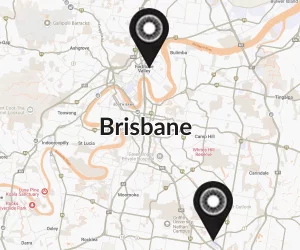
Clearing the fog: Understanding blurry vision after laser eye surgery (LASIK)
Imagine a life without the constant need for glasses or contact lenses. That dream becomes a reality for many people who undergo laser eye surgery, also known as LASIK (Laser-Assisted In Situ Keratomileusis). While the procedure is highly effective and has transformed the lives of millions, it’s natural to have concerns about potential side effects. One common worry is experiencing blurry vision after laser eye surgery. People also report ‘seeing stars’. In this article, we’ll address these concerns with real medical facts to alleviate any fears surrounding these post-operative symptoms.
Understanding laser eye surgery and blurry vision:
It’s common to experience blurry vision after LASIK surgery, to some degree, during the initial stages of recovery. This blurriness typically resolves within a few days or weeks1https://journals.lww.com/internat-ophthalmology/Citation/2000/07000/Photorefractive_Keratectomy.7.aspx. Here are the key factors contributing to this temporary condition:
- Corneal healing process: We reshape the cornea for LASIK refractive surgery by creating a ‘flap’, using a laser to correct refractive errors. After surgery, the cornea needs time to heal and stabilise, which may result in temporary vision fluctuations, including blurry vision.
- Dry Eyes: Dryness is a common side effect after LASIK. During the healing process, tear production may be temporarily reduced or imbalanced, leading to dry eyes. This can cause intermittent blurry vision until the tears replenish and stabilise.
- Ocular surface irregularities: In some cases, minor irregularities on the eye’s surface may occur during the healing process, leading to blurry vision. These irregularities usually resolve over time2https://iovs.arvojournals.org/article.aspx?articleid=2165488 or can be managed through further treatment if necessary.
The phenomenon of seeing stars after LASIK:
Another concern often expressed by patients is the perception of “seeing stars” or experiencing visual phenomena after LASIK. Rest assured, this phenomenon is typically temporary and can be attributed to the following factors:
- Pressure changes: During the LASIK procedure, creating a corneal flap and the subsequent laser reshaping may lead to temporary changes in intraocular pressure. These pressure fluctuations can affect the retina and result in brief visual disturbances3https://www.sciencedirect.com/science/article/abs/pii/S016164201100564 such as seeing stars or flashes of light.
- Swelling and inflammation: Post-operative swelling and inflammation are normal parts of the healing process. These factors, combined with medicated eye drops, can occasionally cause visual disturbances4https://journals.lww.com/optvissci/Abstract/2008/08000/Carbomer_and_Sodium_Hyaluronate_Eyedrops_for.21.aspx, including the perception of seeing stars.
- Sensory adaptation: The brain’s visual processing system may require time to adapt to the changes made during LASIK surgery. As your visual system adjusts, you might experience brief visual phenomena, which tend to diminish as your brain adapts to your new visual clarity.
Addressing concerns with real medical facts:
If your vision is blurry or you see stars after LASIK vision correction surgery, this is generally temporary and part of the normal healing process. However, individual experiences may vary. If you have any concerns or if these symptoms persist or worsen over time, you must consult your ophthalmologist for a thorough examination and appropriate guidance.
Medical advancements and rigorous screening ensure that LASIK is a safe and effective procedure for most individuals. Complications and long-term side effects are rare, and most post-operative issues resolve with time or can be effectively managed with additional treatments.
Laser eye surgery, particularly LASIK, has revolutionised the field of vision correction, allowing many to bid farewell to glasses and contact lenses. If you experience blurry vision and are seeing stars after LASIK, rest assured these are temporary phenomena and are a normal part of healing. Most of our patients experience excellent visual outcomes5https://www.sciencedirect.com/science/article/abs/pii/S0161642006013236.
By understanding the underlying causes of these post-operative symptoms and recognising that they are part of a natural healing process, you can approach your LASIK journey with confidence. Book a free assessment with us for any concerns or questions.

Hi, I’m Dr. Matthew Russell, a laser and cataract surgeon
HI I’M DR. MATTHEW RUSSELL A LASER EYE AND CATARACT SURGEON
With over 15 years of experience, I enjoy the privilege of helping patients of all ages reclaim clear vision or preserve it for as long as possible.
Vision correction and high-precision cataract surgery hinge on the expertise and skill set of the provider who also has access to the most precise tools for the job. Ophthalmic surgeons like me know how to make treatment safe, comfortable and positive for the patient. They know how to minimise the risk of complications and maximise successful outcomes.
I have a passion for helping my patients enjoy the clear, high-definition vision they need to live rich and active lives. Now, I have hand-picked a team of professionals that share my passion and commitment to exceptional care.
Dr. Matthew Russell
MBChB, FRANZCO





